|
My psychotherapist has a lot of words. Sometimes this is a source of frustration for me, especially if he uses a lot of them all at once in a fashion that means I have to work a little harder mentally or emotionally than I want to, or listen a little longer than my patience seems to allow for. Sometimes his words are hard to hear, sometimes I don't hear them at all.
At other times, his words cross the divide between us, find the words I'm not saying and say them for me. That can be close to a transcendent experience. The part of me which was too scared to express itself is not only seen, but spoken to. That which was nebulous and yet to be formed suddenly takes on new life, becoming real in a way it never could be when it remained unsaid. Recently I was struggling to put into words my feelings around a break. I was trying to say something, and failing, and then he said it for me...
1 Comment
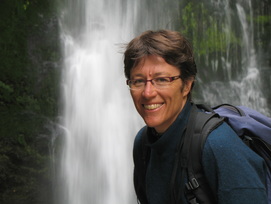 We're very excited to be welcoming Mindfulness Mentor Di Robertson on to our team at Lucid Psychotherapy. She brings an extensive background in practicing and teaching mindfulness that will be relevant to anyone who wants to deepen their practice, develop personally, or tap into the huge benefits of mindfulness for addressing the challenges of our lives. As well as mindfulness, Di brings a strong background in ecology which will be of additional relevance to those who are engaged or want to be engaged around sustainability issues. Read more about Di here. Perhaps as important as her skills and experience are the warmth, integrity, and connectedness that are very much a part of Di. Bringing Di on board as a mindfulness mentor is also a shift for lucid psychotherapy, as we bring the first practitioner on to our team who is not a mental health professional. This is part of our continuing exploration of how we can create change in our society that includes, but is also at times broader than traditional individualistic psychological work. I sat in front of my clinical supervisor for my fortnightly meeting in which I was supposed to talk about how I was coping, and how my work helping others was going. “I’m feeling really stressed at the moment.” I started off by saying. This was not an unusual way for me to start supervision sessions. I was hesitant to even bring this up, because I’d talked about my work stress often before and things didn’t seem to be any better for doing so. “How would you rate your stress from 1-10 at the moment?” She asked me in response. “I’d say an eight.” “Eight’s pretty high.” She said, then asked: “What are you doing for self care.” I rattled off a few things I was already doing, meditation, running, spending time in nature. All of the right answers, but I was already doing these things, and was still feeling stressed, and truth be told, pretty unhappy. I quietly despaired, pretended that I’d have a go at the further suggestions for self care that she made, and changed the topic to the work I didn’t want to do with drug and alcohol addicted citizens of West Auckland, who mainly didn’t want to get state mandated help from me, either.
Eventually, sick enough of the work and the workplace that skipped over the surface of the real social and personal issues, I left, a decision I never regretted for an instant. Looking back, I see this experience of so-called self care as actually being the managing of both clinicians and citizens - a substitute for real connection and healing, and certainly a substitute for addressing the disempowerment of both workers and the poor of West Auckland. Read the rest of the article by Michael Apathy here... I recently told my therapist that another therapist had told me I would make a good therapist. I'm not sure what reaction I really expected, but whatever it was, it wasn't the one I got. My therapist laughed. A lot. Like, a lot, a lot. I'm talking a really long time.
At that moment I didn't know whether the laughter was because he agreed I would make a good therapist, or if the idea was so ludicrous he could barely stay in his seat. I was leaning toward the latter reason. When we did eventually clarify his thoughts on the matter, it turned out that I was wrong. The same thought had occurred to him at some point and he figured I might make a good therapist too. And that surprised me. Mostly because I've told him all sorts of utterly unrepeatable things, many of which do not cast me in the best of lights. I've also, at times, had moments in therapy of which I'm less than totally proud. I have often not made his life easy. Not by a long shot. It's quite heartening when somebody who knows where the bodies are buried seems to think you can be trusted among the living. I'm not sure myself. On the positive side, I am very interested in therapy, and I do seem to have the kind of temperament and demeanor which encourages people to share things with me, almost in a pseudo-therapist kind of way. I've gotten used to the fact that near strangers will tell me dark secrets and then sort of wander off satisfied at being unburdened. I enjoy listening to people in that way, and I'm pretty practiced at sharing in the pain or the sadness or the guilt or the fear of others. I enjoy connecting with people and sharing those deeper moments with them. I've even accidentally therapisted a therapist before. During a session with a previous therapist, I quite nonchalantly, and without any thought at all looked at her during a lull in the conversation and asked her“what feels most useful to talk about?” She just stared at me, probably wondering if I was mocking her, and then we both cracked up laughing. I wasn't mocking her at all, I'd just kind of slipped into feeling as though I were the one who should be asking the questions, and that was the question she always asked, so it was the one that first came to mind while I was on auto-pilot. I have also played therapist with my cats and my dogs. I have asked how our relationship feels between us. I have inquired as to whether or not they are feeling anxious. I have suggested we explore their feelings on a deeper level through mindfulness. Most of the time they fall asleep during our sessions, but I'm okay with that... Guest Blog Post: A Mindfulness weekend at Dharma Gaia, experiencing the teachings of Thich Nhat Hanh18/5/2016 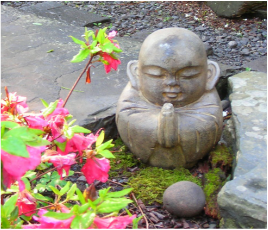 I got a ride from Auckland to Dharma Gaia in the Coromandel with a local member of the Order of Interbeing and a young Vietnamese woman who was preparing to receive the five mindfulness trainings (ethical precepts that can guide a practitioner's life choices). I was very curious: what is it like to practice mindfulness in the tradition of Thich Nhat Hanh? Thay, as he is known within the order, is an incredibly prolific writer and teacher who has modernised Zen buddhism and popularised the concept and practice of mindfulness in the west. I was attracted to his teachings because of the lightness and joy I could see in the monks and nuns whose talks are available online. The retreat centre is tucked away in a valley of native bush, down the hill from Mana Retreat, and is made up of two larger and a few smaller stained wood buildings, with a productive vegetable garden and several tracks winding through the bush, across streams and through marsh. It was certainly a very relaxing and wholesome place to spend the weekend, and a weekend seemed suddenly like a terribly short time to soak up the sun, quietness and the renewing spirit of the bush. Quickly I became aware that there was an implicit focus on truly caring for oneself. The schedule was not gruelling, there were several pockets of free time during the day, and an afternoon session devoted to deep relaxation. Sitting meditation was a minority in the programme, which included walking meditation, work practice, dharma sharing and dharma talks by sister Shalom. Song is employed to further the sangha's (community's) togetherness and as a simple way of reminding practitioners of the basics of the teaching, such as “Happiness is here and now.” Eating mindfully, walking mindfully, I did notice how quickly my life became simpler, my mind quieter and contentment was able to surface as a natural way of being. Especially in the walking meditations, often barefoot through the grass and bush, I found myself entering deeply into a state I describe as 'holy wonder,' my ability to notice that life all around me is a miracle and to feel the enormous gratitude and awe that arises in me when I see the sun hit the clouds, the pattern of the bark on the trees, and hear the stream trickling over rocks. A friend said to me recently, “I like to enjoy the little things in life.” I got to thinking: perhaps what we see as the little things are actually the big things. Perhaps what we see as the big things, are actually very unimportant. Being aware of and thankful for the many miracles that bring food to our table and the community of people we share that food with is one of the keys to rebalancing our perception of what is truly important and what, in reality, we don't need to worry so much about. I would recommend a mindfulness weekend at Dharma Gaia (or practice centres in Nelson, Wellington or Hamilton) for anyone interested in learning the simple but profound practices of mindful sitting, walking, eating and working and experiencing how they can positively impact on your life. I notice a consistent benefit on my mental and physical wellbeing through the practice, without finding it difficult to fit into to my daily schedule. There are many online talks by Thay and other members of the order which would provide a good introduction to the teachings – visit Plum Village Online Monastery on youtube or visit tnhaudio.org. About the Author: Lucette Hindin is an organisation development consultant based in Christchurch. With a background in the creative arts (theatre, dance, circus) and community development, Lucette focuses on group process and strengthening relationships, with the goal of increasing performance and productivity through attention to personal fulfilment, joy and purpose. Lucette met Michael Apathy through her involvement with the Mountains and Rivers Order of Zen Buddhism in Christchurch, and together they facilitated the workshop “Coming Back to Life: Meditation and the Environment.” "The world is full of pushing and shoving and people who think they know what everybody else needs. What's really rare and much more important in my opinion, are places where people can feel safe, and content and cared for and begin to gather their strength. When they're ready for the next step, they'll take it. But in order for that to happen we as helpers and rescuers and healers have to learn to bear the anxiety of not knowing when, or even if that step will be taken. We need to understand that wounds which were inflicted over the course of years will not be healed in months." At two months old, she was abandoned in the wild and left to die. She almost did. Discovered hours from passing, dehydrated by a third of her body weight and emaciated to the point she looked like a kitten half her age, she was taken to a vet and given life saving treatment. For three days she was watched over day and night with fluids and antibiotics until she was declared stable enough to come home with me. There was not much to her. She was a big head, skinny little legs and a belly swollen from starvation. I held her in my hands and my heart hurt because she had been so horribly harmed. She was, essentially, a skeleton with fur.
For the first week, she did nothing but lay in her bed. I would encourage her to eat, and she would, but then she would return to her blankets and curl up and sleep. She had little to no energy. She could not run or jump or climb. She was a kitten, but just barely. She had a significant head tremor which would appear when she was startled or frightened which gave her the appearance of a fluffy bobble toy. She was quiet, aside from a small, cracked meow she gave one day. It sounded hoarse and static-y, like the sound an old fashioned record player would make when you lifted the needle....  I'm body stoned with sadness. To my therapist's left, a vase of wilting flowers deposits purple petals onto the tiny table which is never used for coffee. Usually they'd be fresh and bright, but not this week because it's only a few days before a break and I guess whoever does the flowers didn't figure it was worth it. They're wildly appropriate, drooping toward slaughtered wood with a defeated sort of attitude. “Don't mind us,” they silently sigh. “We're just dying.” On the table next to me, a Christmas shaped lighthouse sits incongruously making no kind of sense at all. Since when do lighthouses celebrate holidays? It's a little reminder that nobody escapes the Christmas season, not even lighthouses, which are traditionally the domain of hermits and misanthropes.* I hate holidays. Not the general premise of them - I'm on board with not doing work sometimes. I hate holiday 'seasons' where everyone and everything stops going to work and people start driving into one another at inordinate rates while interminable jingles ring out holiday cheer. Of course, one could look on the bright side: the holidays mean a break from therapy, where you get pressured to spend time with the family that helped put you there! Hurray! Suffice to say, between the desecrated light house and the dying flowers, it's been a hard session. Actually, hard doesn't begin to describe it. I've spent most of it either in tears or on the verge of tears, feeling a sadness and anger which is nearly overwhelming. In the midst of the umpteenth tense silence, an alarm goes off. “We've got five minutes,” he says gently as he silences it. “Fuck you, and fuck your five minutes,” I don't say. It's one of the many things I've not said this session, and I'm glad I didn't say it because he doesn't deserve that. It's not his fault. I feel guilty for being so miserable. He's probably looking forward to his holiday (who wouldn't look forward to two weeks without people falling apart in fairly dramatic, if still somewhat restrained fashion. You could not pay me all the money in the world to be a therapist. More specifically, you could not pay me to be my therapist.)... I have written about the gratitude journal before. If you missed that episode, here are the Cliff notes: angry client complains about everything under the sun for several sessions. Therapist suggests that journaling things client feels grateful for might make client feel better. Client vehemently rejects notion of not just journaling gratitude, but the concept of gratitude itself and proceeds to give a view of the world that would make even the most enthusiastic goth feel a bit overwhelmed.
The gratitude journal incident was many things, but primarily it was a point of deep contention because it rose out of what felt like a fundamental misunderstanding of who and what I was. Granted, it was an easy mistake to make. Going into a therapist's office and listing all the things wrong with the world from sick kittens to road cones might reasonably be interpreted as a fixation on the negative which could be addressed with some kind of shift in thinking. There can be no doubt that at that time I felt broken. But more than that, I felt that the whole world was shattered, to the very core of creation. One of Douglas Adams' books contains the following opening lines: “The story so far: In the beginning the Universe was created. This has made a lot of people very angry and been widely regarded as a bad move.” Douglas Adams wrote that as a joke, but sitting in the therapy office his words rang true for me. It was all bad, it was all broken, it was all wrong. Hand me my towel, I'm ready for the hyperspace bypass to come on through. (This is a snippet of a piece written by an anonymous client of Lucid Psychotherapy & Counselling. This piece is a part of a new series of writings on counselling/psychotherapy; a client's perspective.) 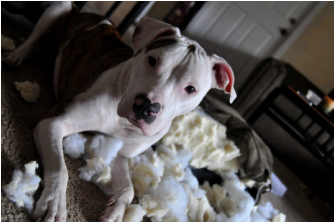 No sudden movements is actually pretty good advice for a lot of situations in life, save maybe a break dancing competition. It's particularly important when it comes to dealing with dogs who have experienced trauma in their lives. It has taken me a long time to write about animal rescue in a context of therapy, mostly because it is hard to see my pain reflected in the pain of the dog named Girl. Dogs who have experienced abandonment and experienced life as strays often develop problem solving skills exceeding those of more cosseted canines. We have a small dog who, though being more than able to fit through a cat door, will never, ever use one, because he relies on humans to do everything. His version of problem solving is climbing up on your knee and staring at you until you do what he wants. Having been born critically adorable and having maxed out at all of 2.5 kilograms, he is under the impression that all people are not only friendly, but terribly impressed by him. He has repeatedly been taught through his interaction with a wide range of humans that everybody adores him. All people are his people. All houses are his house. All things are his things. This is the truth according to Lap Dog. Girl's experience is quite different from Lap Dog. She did not win the genetic lottery. She was born one of New Zealand's many Pitbull / Staffy / Boxer / Labrador / Mastiff / Sharpei / whatever else happened along at the pound orgy mixes. We know very little of her past, all we know is that she was left to stray, terrified of people, and pregnant at around eight months of age. We know that she was accustomed to sleeping rough, eating out of rubbish bins, and running whenever people appeared. No people were her people. No houses were her house. No things were her things. That was the truth according to Girl... (This is a snippet of a piece written by an anonymous client of Lucid Psychotherapy & Counselling. This piece is a part of a new series of writings on counselling/psychotherapy; a client's perspective.) There's something vulnerable about him from the moment we meet. He has an age defying quality, not quite a baby face, more like a young soul. His qualifications are solid, his experience impressive. I find myself with an instinctive trust for this man who seems so earnest and unjaded by the world even though he is more than old enough to have been touched by the worst of it.
He speaks gently, softly, sometimes so quietly I can't make out the words. He asks me what has bought me to therapy. I tell him many things. I tell him how I have seen other therapists, but have been left cold by their approaches which seem to skim the surface of everything and address nothing. One has stared at me with wide, deer in the headlights eyes as I described my feelings. The other twisted himself into such a sideways contortion as I spoke that I thought he might actually fall over on the couch where he sat. “How would you like me to respond to you?” The final nail in the coffin of a therapeutic relationship. When the therapist no longer has any idea what to say or how to say it, the client can hardly feel safe. The man in front of me, the new therapist, seems less confused when I explain the source of my pain. Adult child of an alcoholic. Unable to form deep, intimate connections. Adrift in a world and universe which I consider to be inherently uncaring. Bored by everyday interactions which seem meaningless and hollow. Oh, and with a dash of neurosis thrown in just to make things more interesting. We agree to work together.... (This is a snippet of a piece written by an anonymous client of Lucid Psychotherapy & Counselling. This piece is a part of a new series of writings on counselling/psychotherapy; a client's perspective.) |
AuthorsMichael Apathy and Selina Clare are practitioners of psychotherapy at Lucid who are excited about fresh, innovative, and effective therapy for individual and environmental change. Categories
All
Archives
December 2016
|
Specialty Areas |
Online BookingBook my first session.
If there are no bookable services showing via the online booking website, this means we currently have a waiting list for new clients. Please give us a call or email if you would like to add your name to it. |

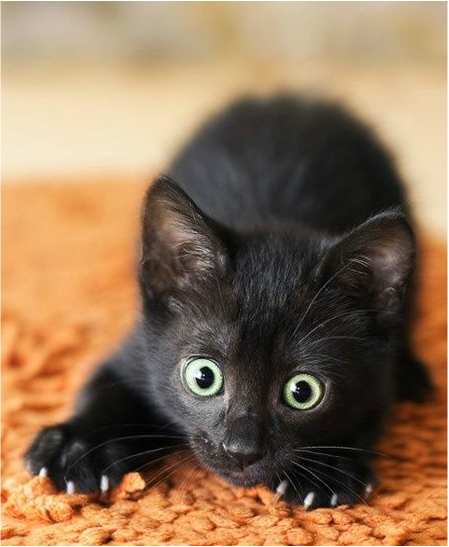
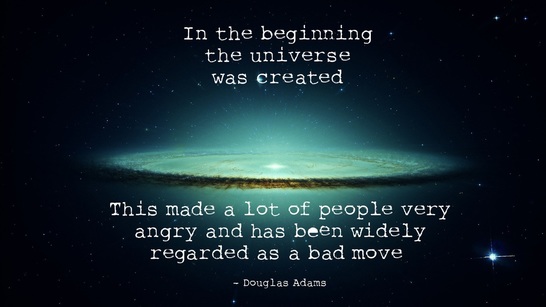

 RSS Feed
RSS Feed